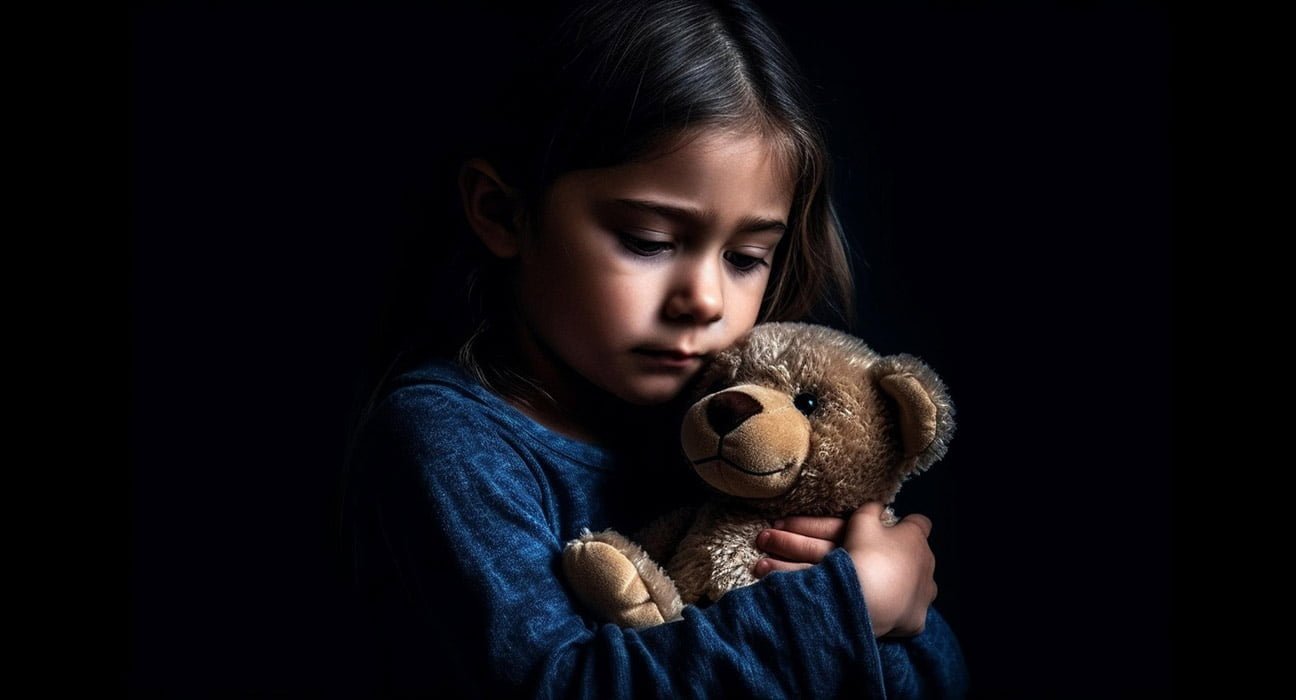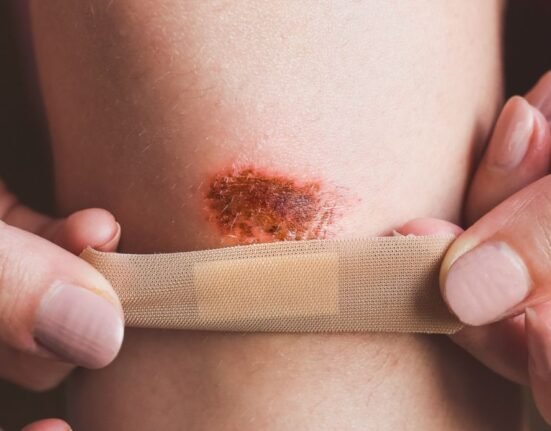An experience that a child finds immensely stressful or emotionally agonizing, resulting in long-term mental and bodily implications is known as trauma in a child. Children who endure from child traumatic push are those children who have been uncovered to one or more traumas over the course of their lives and create responses that continue and influence their everyday lives after the traumatic occasions have finished. Traumatic reactions can manifest as emotional distress, depression, anxiety, behavioral changes, academic difficulties, nightmares, physical symptoms, depressive indications, uneasiness, behavioral changes, challenges with consideration, scholarly challenges, bad dreams, physical indications such as trouble resting and eating, and throbs and torments, among others.
Children who endure from traumatic push frequently have these sorts of side effects when reminded in a few ways of the traumatic occasion. In spite of the fact that numerous of us may involve these responses from time to time, when a child is encountering child traumatic push, they meddled with the child’s day by day life and capacity to operate and connected with others.
Also Read: Psychology behind Traumatic Events
The importance of understanding the impact on emotional development
Often, because of the need to idealize parents and believe that they are perfect, and owing to the fact that children’s developmental lives revolve solely around themselves, children often blame themselves for anything that goes wrong in the family.
As a result, they may draw erroneous conclusions about themselves and their behavior, and believe that they are the cause or responsible for problems at home or elsewhere, while those problems are actually caused by the behavior of the people around them, including their parents.
In general, children are powerless to change the behavioral dynamics around them because they depend on these people for food, shelter, clothing, and love. This erroneous conclusion is deeply ingrained in children’s beliefs about themselves, and these beliefs are difficult to correct as children grow older, even into adulthood.
Lifelong Consequences of Childhood Trauma:
You might feel like, “I’m inherently a bad person, because of all the bad things I created in my family. This in itself is extremely profound and deeply damaging to feelings of self-esteem, confidence, trust in others, etc. Adverse childhood experiences, such as abandonment, fear, suffering, and bewilderment, can negatively impact a child’s capacity to interact with others, particularly with their parents or other significant figures in their life. As we mature, what we learn adds to what we already know. So, much as building on uneven ground causes the building to crack and crumble, what we learn is linked to a neurological system full of instability and insecurity, a poor knowledge of the world around us, and uncertainty in our interactions with others and sensory information surrounding us.
Also Read: Trauma Due to Childhood Sexual Abuse
All of this can affect your ability to learn, pay attention, draw the right conclusions about almost anything, establish trusting relationships with adults, and more. Developmentally, therefore, the effects of trauma are long-lasting, are an integral part of the child/person’s psychological development, and are difficult to manage later in life.
Impact of trauma on neural pathways and structures
When trauma occurs before age five, when the brain and nervous system are forming, traumatic stress interferes with normal, healthy development of key areas necessary for academic success. Self and Affect, Dissociation, Self-perception, communication skills and cognition /academic achievement. Childhood trauma causes more neuronal and glial cell loss in the cerebral cortex and cerebellum. Excessive life stress, such as marital strife or chronic sickness, can lead to impaired spatial working memory performance and decreased white and gray matter volume in the prefrontal cortex.
Pediatric imaging studies show that abused and neglected adolescents had lower brain and cerebellar sizes than non-abused youngsters. Child abuse is also associated with adverse effects on individual brain structures related to reward processing and default networks. The researchers also found changes in brain function in the amygdala and hippocampus of maltreated adolescents vs non-maltreated individuals. Some research imply that hippocampus shrinkage may have an impact on the development of childhood abuse. Childhood abuse has also been linked to impaired development of brain reward areas important in emotional detection and social cognition, including the superior temporal gyrus and orbitofrontal cortex.
Also Read: Relationship Between Crime & Trauma in India
Some more effects
Childhood trauma has adverse consequences on biological stress systems as well as cognitive and brain development. Childhood trauma takes a heavy toll on victims and society. Resilience is not a common end result of childhood trauma. How does this affect a child’s mind?
They grow up confused, feeling inferior, doubting themselves, perhaps feeling inferior or defective. They feel embarrassed by this and may also build up anger or they may judge themselves for having such emotions and reactions. Also, they may feel less competent, not good enough, and lonely. If trauma damages the brain during development, In my opinion, it damages the mind even more because cognition is distorted, children may lack the ability to think (the ability to understand their emotional world and others) and may not be able to develop healthily.
Their thinking is not only distorted but can even become confused and slow if the PFC does not develop with age. They will be “immature/imperfect” in every aspect.
How trauma disrupts emotional regulation
In a seminal study, a total of 14 traumatized kids and 16 comparison youth matched for age, gender, and IQ underwent functional MRI while doing an emotional conflict task requiring categorizing facial affect while ignoring an underlying emotive phrase. The involvement of the conflict management system was measured at both the brain and behavioral levels. Traumatized kids were shown to be less capable of regulating emotional conflicts because they were unable to diminish prefrontal cortex activity and engage pregenual amygdala-cingulate inhibitory pathways.
Furthermore, trauma-exposed adolescents had higher conflict-related amygdala activation, which was associated with lower reward sensitivity. These findings show that trauma-related deficiencies in autonomic control of emotional processing exist, as does an increase in sensitivity to emotional conflict in brain systems implicated in danger detection.
Also Read: Beyond Trauma: Illuminating the Power of Post-Traumatic Growth
Build up a Path to Healing
Abnormal amygdala reactivity to emotional conflict is connected with diminished reward sensitivity, which appears as a symptom of extreme stress sensitivity and may contribute to the development of psychopathology in adolescence. These findings show that deficiencies in conflict control of emotional material may contribute to an increased risk of psychopathology in people who have suffered early life trauma.
In conclusion, the findings of this study show the critical need for greater understanding and care for children who have encountered trauma early in life. Understanding the significant influence on children’s emotional development enables focused treatments and compassionate care.Let us rewrite the tales of these children so that they do not end in misery, but rather in healing, strength, and success. Let us work together to shape a future in which no kid is left behind and every healing journey is met with compassion and faith deeply founded in the human spirit.
References+
- Marusak, H., Martin, K., Etkin, A. et al. Childhood Trauma Exposure Disrupts the Automatic Regulation of Emotional Processing. Neuropsychopharmacol 40, 1250–1258 (2015). https://doi.org/10.1038/npp.2014.311
- https://www.quora.com/How-does-emotional-trauma-affect-children-s-behavior
- De Bellis, Michael D, and Abigail Zisk. “The biological effects of childhood trauma.” Child and adolescent psychiatric clinics of North America vol. 23,2 (2014): 185-222, vii. doi:10.1016/j.chc.2014.01.002













Leave feedback about this